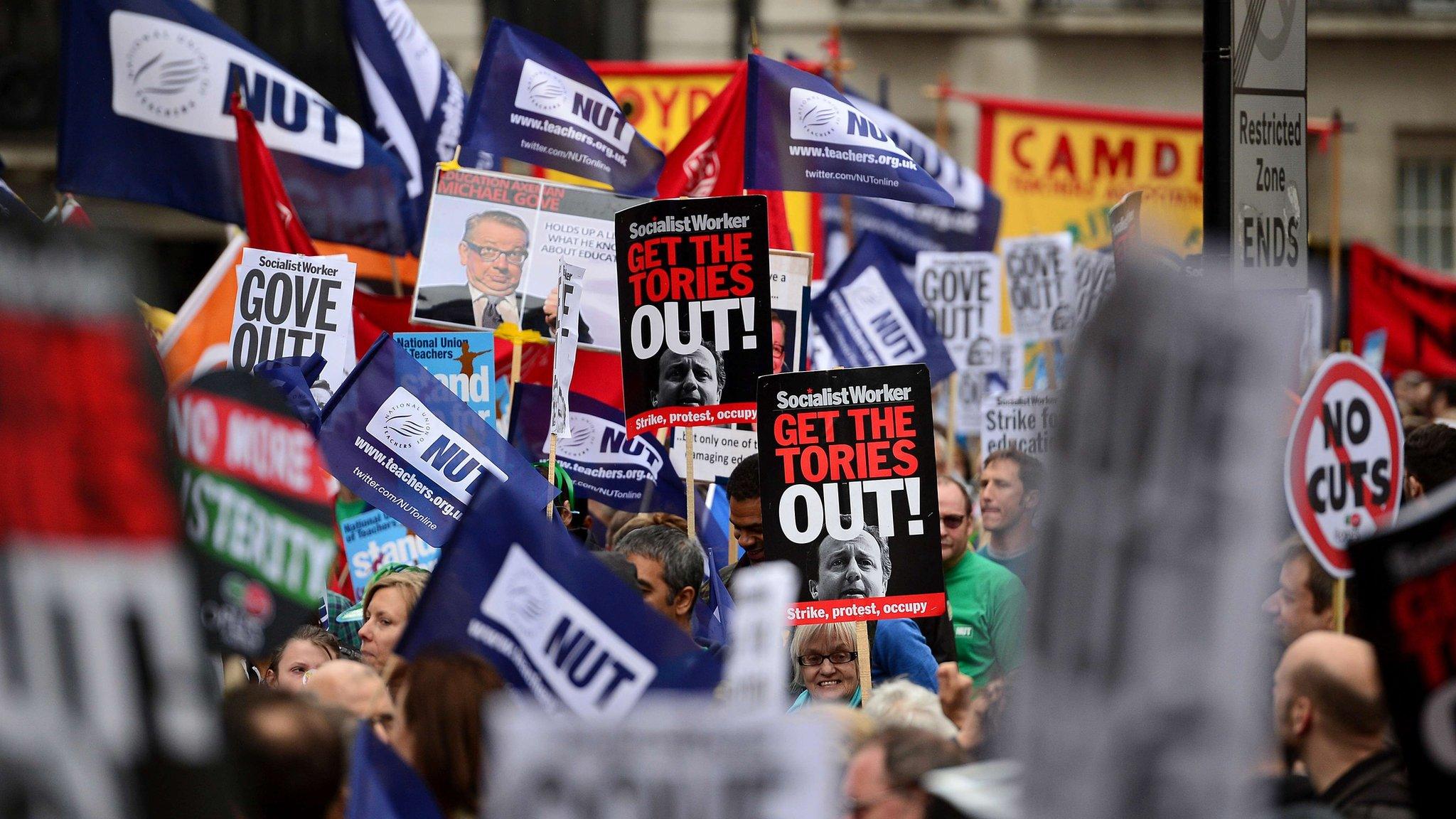Strikes present an opportunity for both unions and politicians
- Published
Perhaps your school was closed and you were forced to take a day off to look after the kids. Maybe your rubbish was not collected or your phone call not answered at the local council.
Perhaps the museum you planned to visit was shut or you struggled to cross the road because there was no one with a lollypop sign to help you.
Maybe you just got stuck in traffic as a demonstration passed by.
Either way, whatever the cause, today's strikes were for many people at the very least rather irritating. But for the politicians and trade unions, today was a moment of opportunity, a positive boon.
Perhaps the greatest beneficiaries were the Conservatives.
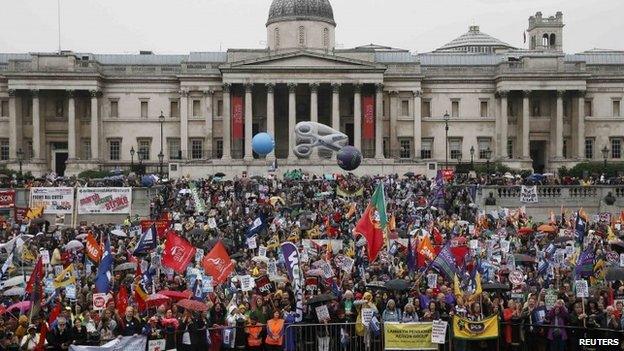
Hundreds of thousands of people joined rallies across the UK and in London strikers congregated in Trafalgar Square
They were able to use the strikes to remind voters that they are capping public sector pay to reduce the deficit and protect jobs.
They are changing public sector pensions to make them more affordable. And they are reforming schools to try to raise standards.
In the eyes of Conservative strategists, these are all policies they are happy to remind voters about at every possible opportunity.
They also had a chance to rehearse some policy that differentiates them from their Lib Dem coalition allies, namely their promise to toughen strike laws in the future, introducing time limits and thresholds for strike ballots.
And of course, today was a prime opportunity for the Tories to have a go at Labour for its close financial links to many of the unions out on strike today.
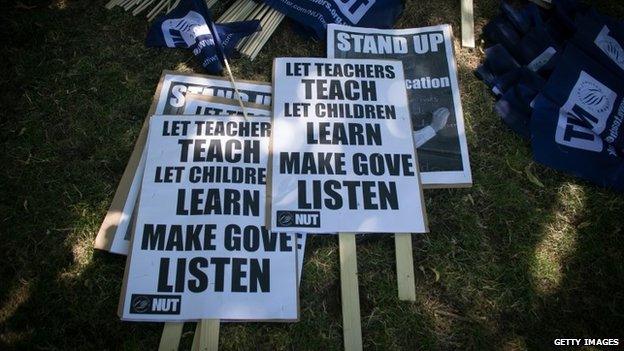
The only teaching union on strike was the National Union of Teachers (NUT)
So tonight at Tory HQ a glass or two may be raised to the unions for giving the party such a golden opportunity to showcase policy and attack the opposition all in one go.
For the unions, today was also a chance to get out various messages: A moment to remind the world that they haven't gone away since their last coordinated strikes three years ago; that their battle against austerity carries on; that they can still pull out the stops when they have to.
As one union official wrote: the strikes were a chance for the unions to "show we are a strong, united force with momentum".
And, let us face it, for many union members and demonstrators, today was a fun day out in the fresh air with like-minded people, a chance to let off steam and engage in a little unplugged democratic activism.
Although today may have been trickiest for Labour, there were still opportunities to be had for them too.
The party struck a carefully calibrated line, neither supporting nor condemning the strikes, saying simply that Labour did not support industrial action in general because it represented failure on all sides.
But it was a chance for the opposition to accuse the government of demonising public sector workers and to highlight their own policy of capping public sector pay more fairly by squeezing the higher paid a little more.
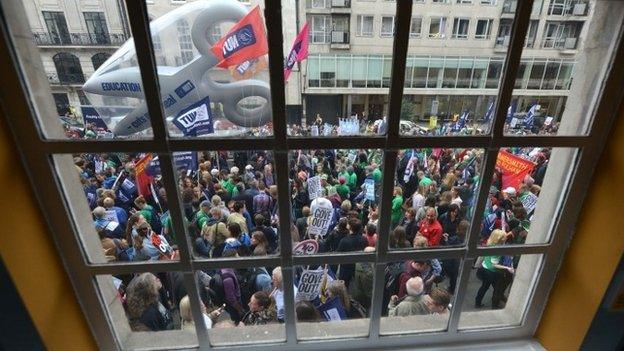
Teachers, firefighters and council workers joined the strike following a dispute with the government over pay, pensions and cuts
Labour spokesmen were also keen to push back against strike ballot thresholds by reminding the Tories of the pitiful turnouts in the 2012 elections for police and crime commissioners.
And as for the Lib Dems, they used the strikes to criticise the Tories, with Vince Cable accusing his coalition colleagues of trying "to undermine basic workers' rights" and "undermine the basic legitimacy of the strike" by proposing ballot thresholds.
So today's strikes happened.
Government policy has not changed. But all sides have had their say.
Trebles all round! Unless, of course, you have lost a day's pay or missed a job interview or even had to wait a little longer for a fire engine.
- Published10 July 2014
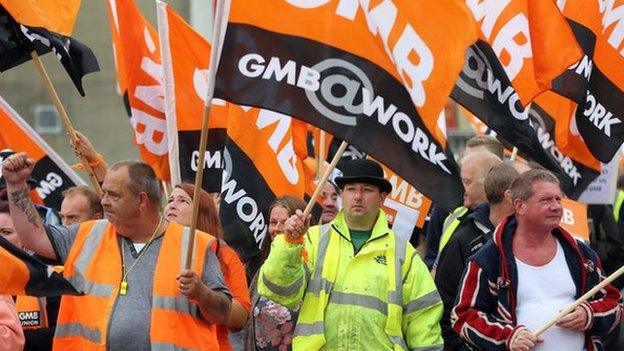
- Published9 July 2014
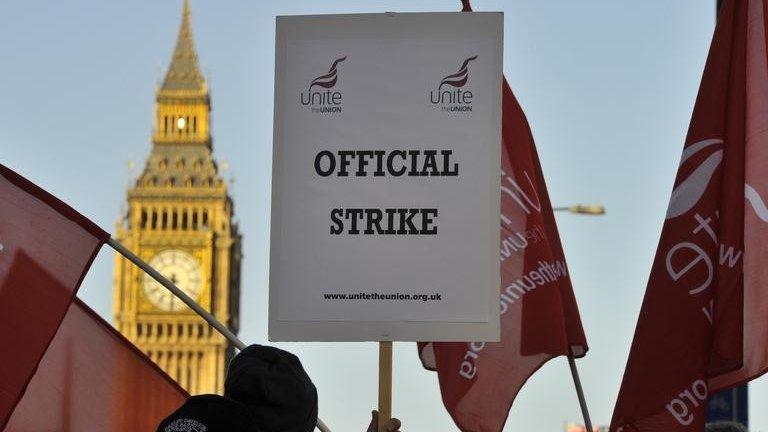
- Published10 July 2014
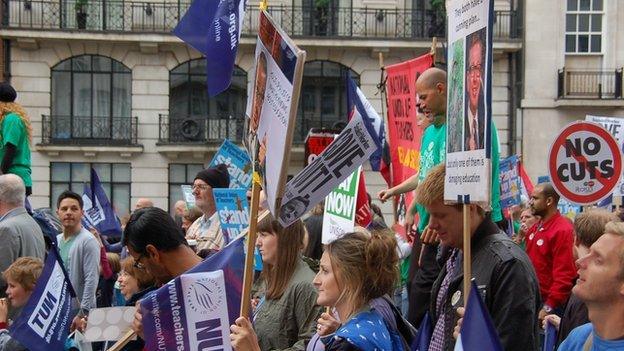
- Published10 July 2014
